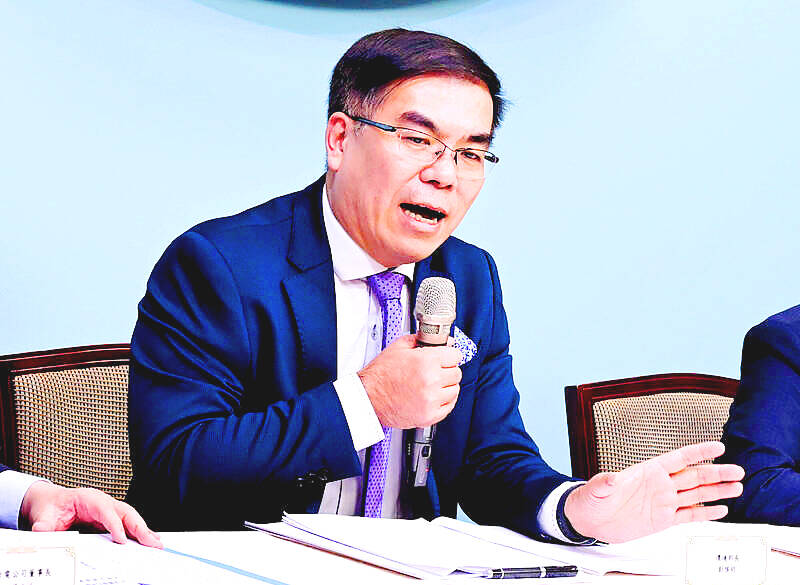ENVIRONMENT:
The central government has backtracked on delegating some environmental impact assessments to local governments over concerns about a lack of capacity
By Chen Chia-yi and Esme Yeh / Staff reporter, with staff writer
The central government would be in charge of environmental impact assessments (EIAs) for hotels, solar plants, and cultural and educational facilities, Minister of Environment Peng Chi-ming (彭啟明) said yesterday, following criticism about the delegation of the responsibility to local governments.
Disputes arose after the ministry last month said it would amend the Environmental Impact Assessment Enforcement Rules (環境影響評估法施行細則) to grant local governments the authority to assess the environmental impact of three types of construction projects: hotels, cultural and educational facilities, as well as solar photovoltaic projects under 30 hectares.
Before a meeting with the legislature’s Social Welfare and Environmental Hygiene Committee yesterday, Peng said in an interview that the three types of EIAs would still be handled by the central government, although hotel projects already entrusted to local governments would remain in their hands.

Photo: Taipei Times
There are 50 to 60 EIA personnel at the local government level across Taiwan’s 22 administrative areas, he said, citing on-site examination results.
While some local governments have been doing a good job, others are facing personnel shortages, Peng said.
As the insufficient EIA capacities of local governments would be harmful to the environment, an overall improvement of the EIA system is necessary, he said.
The ministry has commissioned a non-governmental organization to conduct a full review of the EIA system, which is expected to identify all problems by the end of next year, Peng said.
The ministry would also help local governments to increase personnel for post-EIA supervision and enhance the review mechanisms to make EIAs more transparent, he added.
Department of Environmental Protection Director-General Hsu Su-chih (徐淑芷) yesterday said construction projects that could have a higher environmental impact in regions like national parks would be reviewed by the central government, while local governments would take over cases with less environmental impact.
Asked about the potential use of nuclear power, Peng said that the UN has yet to reach a consensus on this topic, adding that pro-nuclear initiatives launched by several countries on the sidelines of COP28 last year were not included in the official meeting minutes.
Innovative nuclear applications such as nuclear fusion and small modular reactors have yet to be fully developed and their commercial transfer remains to be seen, he said.
Taiwan must develop diverse energy sources instead of relying on a single energy source, and nuclear energy is just one of many options, Peng said.
An EU report at COP29 found that green energy accounts for up to 45 percent of global energy usage, which makes it the most prevalent type, Peng said, adding that nuclear power could not solve all energy problems.